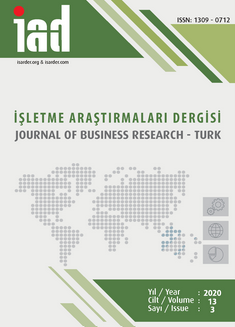Otellere İlişkin Çevrimiçi Geribildirimlerin Makine Öğrenmesi Yöntemleriyle Duygu Analizi
Sentiment Analysis of Online Feedbacks on Hotels via Machine Learning Methods
Author(s): Murat Fatih Tuna, Oğuz KAYNAR, Şükrü M. AKDOĞANSubject(s): Business Economy / Management, Methodology and research technology, Tourism
Published by: Orhan Sağçolak
Keywords: Customer Feedbacks; Online Booking Websites; Hotel Businesses; Sentiment Analysis; Machine Learning;
Summary/Abstract: Purpose – Today, one of the ways to quickly understand the consumer is to analyse their feedbacks about the products or services of the business quickly and accurately. In this sense, understanding the sentiment in the feedback with computer-based techniques is one of the ways to be followed. Overlapping level between the sentiments hidden in the feedbacks of hotel customers and their ratings regarding the service they received from the hotel have been examined in this study. Design/methodology/approach – The method used in the research is machine learning-based sentiment analysis. The data set used consists of customer comments on 164 hotels in Antalya, extracted from an online booking site via web scraping method. Compatibility of the comments in the data set with the ratings added to the comments by the customers was tested with a binary sentiment classification via seven different machine learning algorithms including Logistic Regression (LR), Random Forest (RF), CART Decision Tree (CART), K-Nearest Neighbors (KNN), Support Vector Machines (SVM), Lineer Discriminant Analysis (LDA), Naïve Bayes (NB). Findings – While the average classification success of the algorithms used in supervised sentiment classification was calculated as 81.3%, it was understood that the algorithm produced the most successful results among them was Logistic Regression (87.9%). The methods used in this study were lined up as LR (%87,99), SVM (%86,84), LDA (%86,24), NB (%82,66), RF (%82,00), CART (%76,92) and KNN (%63,91). Discussion – It has been suggested that the model applied in the study, in parallel with the literature, can be used as a tool for hotel managers to make fast, consistent and cost-effective marketing decisions, and that added value can be produced for hotel businesses. It is thought that the study will provide support to both the stakeholders of the accommodation businesses and the researchers who will work on this subject. Moreover, satisfaction with hotel services located in Antalya province instead of international or global tourism satisfaction were investigated in the study. This study can be extended with similar studies for both different minimal locations and larger regions in Turkey. In future studies, it will be possible to realize multilingual applications by using different language libraries. In addition, it is foreseen that the textual expressions can be successfully and quickly resolved in terms of accommodation businesses, as well as cost, time and labour savings.
Journal: İşletme Araştırmaları Dergisi
- Issue Year: 13/2021
- Issue No: 3
- Page Range: 2232-2241
- Page Count: 10
- Language: Turkish

